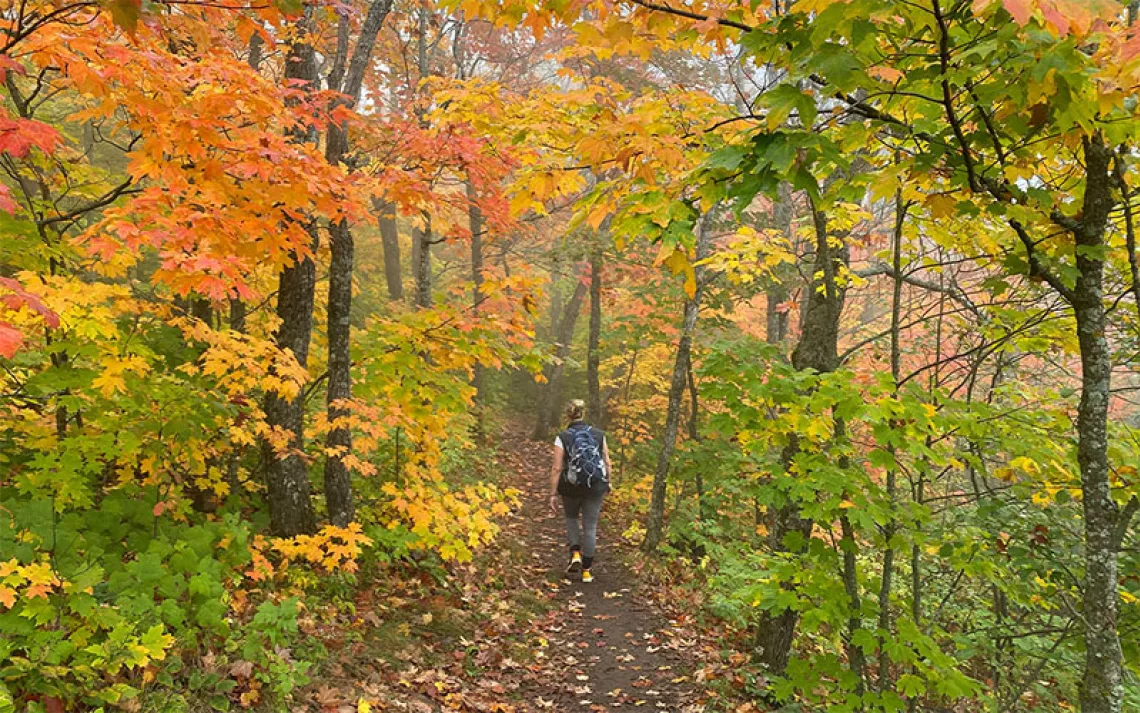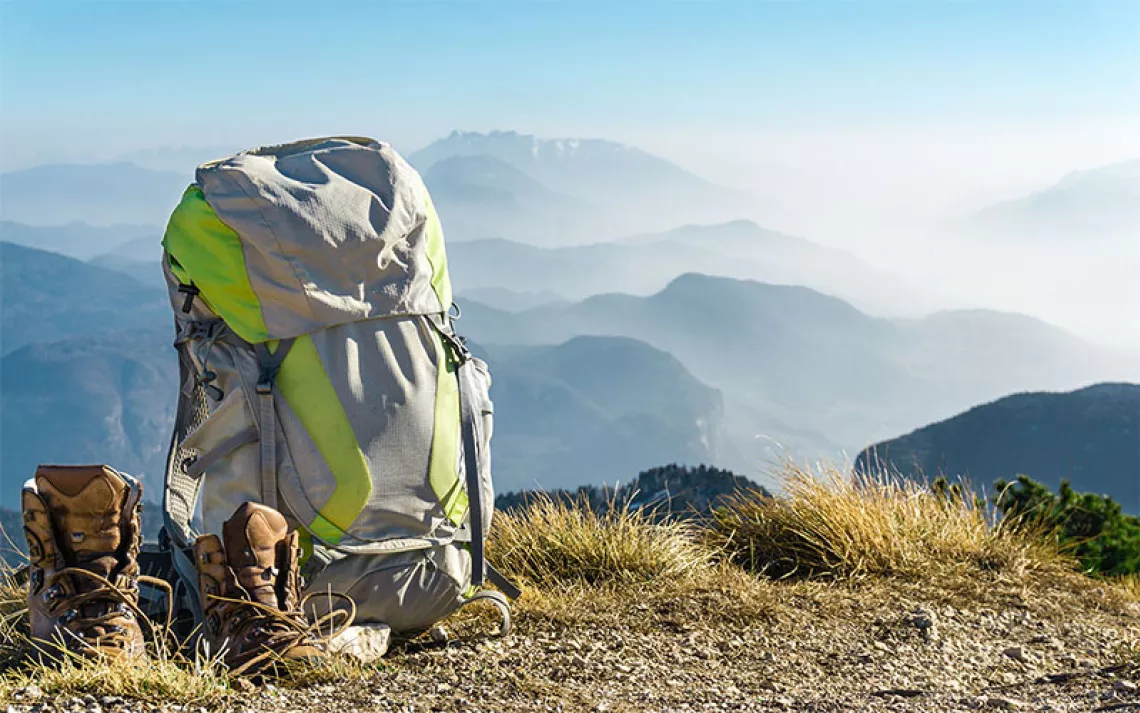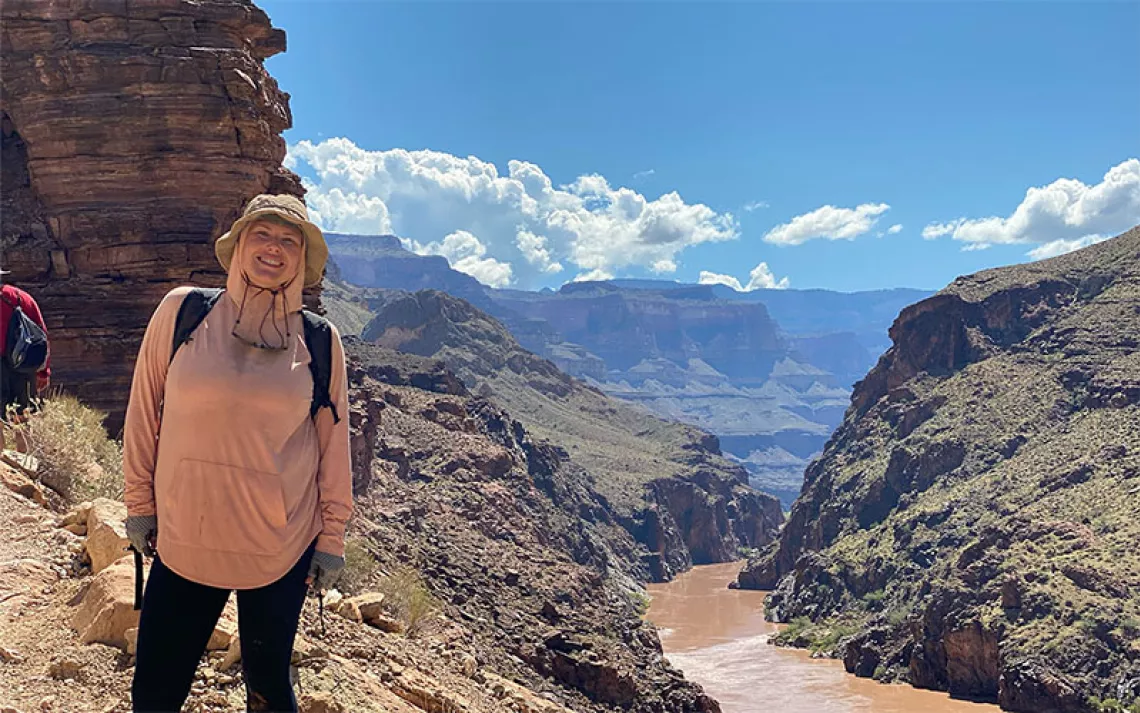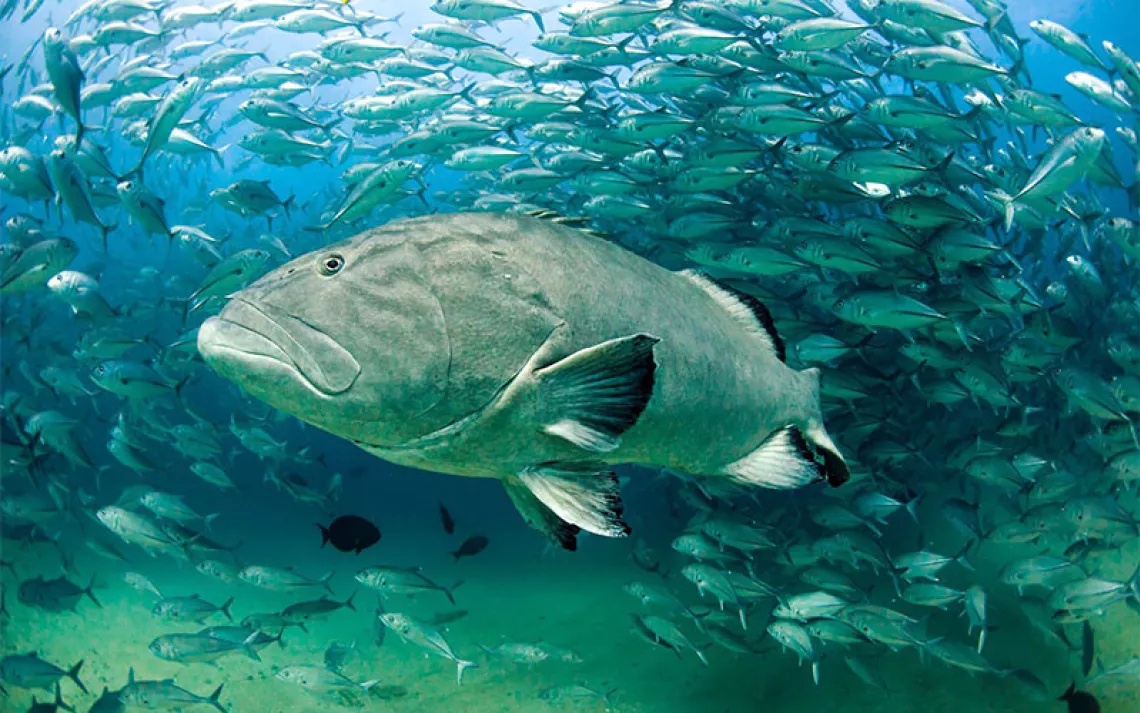Q&A: Wild Author Cheryl Strayed

At 22 years old, Cheryl Strayed lost her mother to cancer, and she also began to lose herself. As she spiraled downward, turning to men and drugs for temporary pleasure, the Pacific Crest Trail (PCT) caught her in her fall. While standing in line at REI, she read a description of the PCT on the back of a guidebook, and while gazing at the photograph of the vast trail, she says that something seemed to "break me open."
As readers travel through the wilderness with Strayed in her memoir, Wild: From Lost to Found on the Pacific Crest Trail, we witness the ability of nature to transform and heal anyone who is brave enough to take it on. Now a year after the book's release, the New York Times bestselling author and Dear Sugar columnist talks to Sierra about her life after Wild, why she considers herself an experimentalist, and how it feels to be superwoman.
In your book, Wild, you mention that you are an experimentalist -- the kind of girl that says yes instead of no. Is that still true?
That is still completely and utterly true. In my youth, I had to reel that in when it came to sex, love, romance, and now in my 40s it is about how to choose wisely the opportunities that I take as a writer. Like, I said yes to writing the Dear Sugar column, I thought, "What the hell, I don’t know anything about giving advice." But it led to a wonderful thing.
What is the last thing you said yes to and regretted?
I feel mixed about it. I get so busy. The irony -- I have written this book about how a long walk is good for the spirit and now I can barely find time to take a 15-minute walk around my neighborhood. But I love to be generous to other writers. Just now it’s hard because everyone I have ever met and everyone that I’ve never met wants me to read their book and support them.
The Pacific Crest Trail is 1,100 miles, more than I even want to drive. What convinced you to hike it?
I was in my 20s and was at this real bottom point in my life. After my mother died, I lost my whole family. I turned to the wilderness as a way of gathering myself. In my grief, I had done a bunch of stuff, taken a lot of risks that were self-destructive and dangerous and not healthy. My hike was to test myself against something that was risky but also really healthy.
Now is the time for environmental journalism.
Sign up for your Sierra magazine subscription.
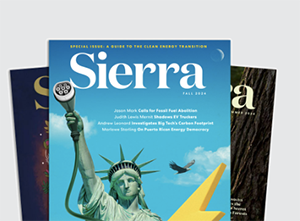
Instead of taking away my sprit and taking away my strength -- the way that the sex and the drugs were doing -- getting that back and building myself back up.
You didn't see another human being for the first eight days of your hike. Did you talk to yourself a lot?
That was really intense! To go eight days without seeing a person.... I could have come off the trail after those 8 days and been like, okay I went through something! I talked to myself a little bit. But there was a long conversation going on in my head. Mostly, "What the hell have I gotten myself into."
You say in Wild that the photograph of a boulder-strewn lake on the cover of a PCT guidebook seemed to “break you open.” You had seen lakes before, what was so intense about this picture?
It was more the description on the back that described this big grand trail. I was like "Wow, this is something big, bigger than me." At that moment I was feeling very small and insignificant. And I thought if I just attach myself to this big grand magnificent thing in some way maybe I can be part of the world again.
Some people might think you're superwoman for hiking the PCT alone. Are you?
I think it is so funny! I had no idea when I was writing this book that people would read it as an inspiring tale. It just makes me laugh because I think "Oh my God I was such a knucklehead.” I’m not superwoman. I will say I am a pretty determined person, I am pretty tough. But I wasn’t trying to be a hero, I was just following up on something that I decided to do. Anyone could do it if I can do it.
You have two young children. What would you say if they decided to hike the PCT alone?
I would say GO! I would absolutely be worried. But I would also know that they were embarking on probably the best thing ever.
Before you left on your hike you had a bit of a drug habit. One day you just stopped, but you used one last time before the trip. Was the PCT your rehab?
Yes and no. I was definitely going down the path of addiction but I was pulled way from it at the right moment. I never went through withdrawal, so it was not rehab in that traditional sense. But it was rehab in resetting my mind and my focus. So that I could clearly see that this was not a good idea, That it didn’t matter that heroin was fun or that it felt good. I saw that I was worth more than that. It was rehab of the mind and of the spirit.
When you were using heroin you, said that it felt like you were on a different planet, Planet Heroin. Could you compare the high you got from drugs to that of when you sat at the East Wind Drive-in eating your ice cream cone once you reached Cascade Locks?
One high is like a high that you feel the fullness of life, you feel the spark of beauty and goodness and possibility. And the other is you feel numb to yourself and to the world. You feel like you have obliterated something rather than created something.
What planet would you call that?
Planet Real Life. When you really embrace the world for what it is. And it includes the things that were hard and the things that were beautiful and good.
What is your environmental vice?
Well lately I have been so busy, I have been doing a lot of prepackaged food for dinner. So I haven’t been so good with reducing.
Your Dear Sugar column on Rumpus is full of all kinds of variety. What kind of questions are your favorite to answer?
I don’t think I have a favorite. I love that I am able to talk to people about sex and money, friendship, kids. All the aspects of life. I would be bored with a column that is just focused on one subject.
Why the name “Sugar”?
Well, I did inherit the column. But Sugar fits me. Sugar is very sweet but also very honest and forthright about her opinion. I love talking about myself in the third person.
If you hiked another trail what would it be and who would you do it with?
I would love to do another hike like the PCT. And I think it is great to do stuff alone. I don’t think it is the time in my life to do that. My husband and I have talked about doing the PCT with my family. Maybe breaking it up over a couple of summers.
You are now a #1 New York Times Bestseller, you’ve been featured in Oprah’s book club. With the huge success of the book, do you feel like you truly remember that 26-year old girl, alone, on the PCT in that "remotely upright position"?
Yeah, I think so. That is the crazy part. When you have this kind of success, suddenly people think my writing career is like who I am. I am still exactly the same person I was. The same person who took that hike and wrote that book in the dining room. I still go grocery shopping and have to figure out what the family is having for dinner.
Can you still shop for groceries in peace?
A few weeks ago I was in the grocery store, and when I got home and looked at Twitter, someone had tweeted that I was in the store shopping. I was like "Oh God, I guess I always have to put my lipstick on before I leave the house." I couldn’t imagine what it is like for real superstars.
You changed your last name to Strayed after your divorce in 1995, right before your hike. If you changed it again, what would you change it to?
I would NEVER change it again! I couldn’t imagine a world where I would change it. Because to me, I am still strayed. In different ways than I was at 26. But the word is still a powerful description of who I am. A strayed really steps off the already worn path. And I think I do that as a writer. I think that straying into the less traveled places has been a big part of who I am. And it is just as true now at 44 as it was at 26.
 The Magazine of The Sierra Club
The Magazine of The Sierra Club
